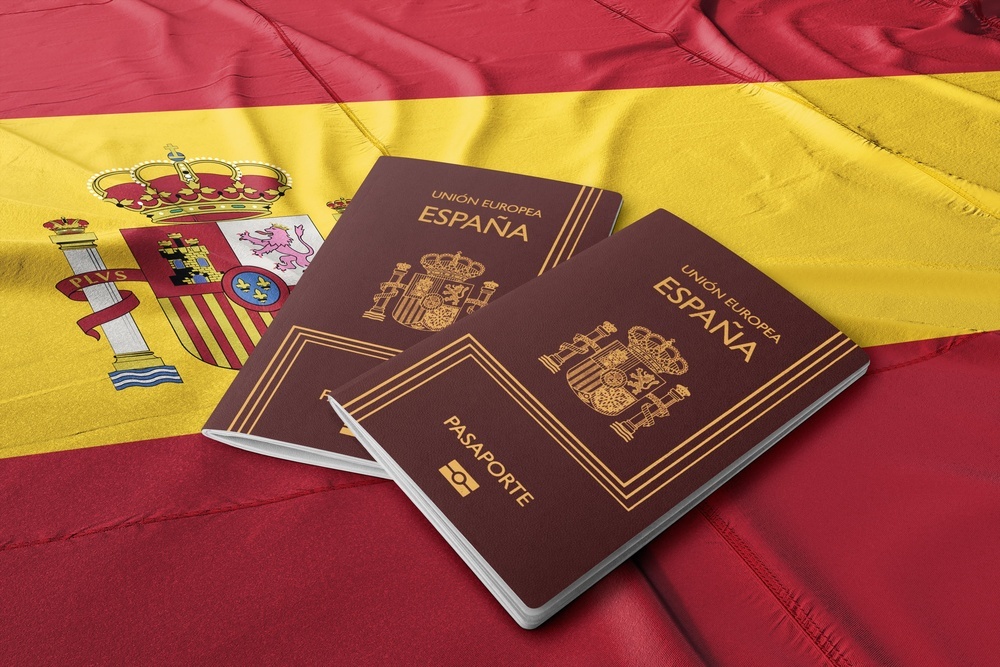Spanish nationality is a ticket to a life full of pleasure and opportunities in all spheres of casual activity. Acquiring Spanish nationality unlocks a wide range of opportunities, namely, the right to live, work, and study anywhere in the European Union, access to Spain’s renowned healthcare and education systems, and visa-free travel to over 180 countries. Thus, more and more expats target to get the residency of this country to improve their living conditions.
Whether you’re drawn to Spain’s vibrant culture, sunny coasts like Estepona (where new build apartments Estepona cater to international buyers), or the stability of EU membership, this guide breaks down the legal pathways to becoming a Spanish citizen. You’ll find the legal ways how to get Spain nationality and learn about existing pitfalls.

Main Ways to Obtain Spanish Citizenship
Spanish citizenship is governed by the principle of jus sanguinis (right of blood — or citizenship by descent). However, naturalization and marriage also come as possible routes to obtain Spanish residency. The benefits provided to residents extend beyond EU freedom; citizens can vote, run for office, and enjoy lifelong ties to Spain’s rich heritage. Below, we explore the most common pathways, eligibility criteria, and tips for navigating the process efficiently. There are four main routes how to obtain citizenship in Spain:
- Citizenship by Residency (naturalization).
- Residency by Descent (jus sanguinis).
- Citizenship by Marriage.
- Nationality for Former Citizens.
Below, let’s consider each type of obtaining nationality in more detail.
Spanish Citizenship by Residency
This is the most common route for foreigners who legally reside in Spain. The residency period varies, depending on nationality and circumstances. The following options for how many years to get citizenship in Spain exist:
- 10 years. It’s a standard requirement for most non-EU nationals (e.g., U.S., Canadian, or Chinese citizens).
- 5 years. This option is offered for refugees and stateless persons recognized by Spain.
- 2 years. This option is introduced for nationals of Latin American countries, Andorra, the Philippines, Portugal, Equatorial Guinea, and descendants of Sephardic Jews (after the 2015–2021 program closed, some exceptions may apply).
- 1 year. This option is given to spouses of Spanish citizens, children, or grandchildren of Spanish citizens by origin (born in Spain), and individuals born in Spain but not registered as citizens at birth (e.g., children of foreign parents).
When considering how to become a citizen of Spain, this way is the most popular. In order to apply for this type of residency, expats should meet the following conditions:
- Continuous legal residency. Applicants must reside in Spain for the required period without prolonged absences. Absences exceeding 3 months per year or 6 months total may disqualify applicants.
- Good conduct. A clean criminal record in Spain and a home country.
- Integration. This aspect is checked at two levels. Language integration implies the need to pass the DELE A2 exam, proving basic Spanish proficiency. Cultural integration requires passing the CCSE test (Constitutional and Sociocultural Knowledge of Spain), covering history, government, and traditions.
Application Process
Here’s a step-by-step guide on how to get nationality in Spain. These steps are obligatory for passing through to succeed in the procedure:
- Gather the following documents:
- Valid passport and residency card (TIE).
- Birth certificate (translated to Spanish and apostilled).
- Spanish and home country criminal record certificates.
- Proof of residency (e.g., rental contracts, utility bills).
- DELE A2 and CCSE certificates.
- Submit application. Once the listed pack of documents is gathered, file at the local Registro Civil (Civil Registry) or online via the Ministry of Justice portal.
- Wait for approval. Application processing takes 18–24 months. Successful applicants must swear allegiance to Spain’s Constitution and King.
Citizenship by Descent (Jus Sanguinis)
Another possible way to obtain residency is to have ancestors in the county. So, answering the question «How can I become a citizen of Spain?», if you’re lucky to have relatives, Spain grants citizenship to individuals with Spanish ancestry, even if they were born abroad. Here, the following categories of relatives are eligible:

- Children of Spanish citizens. They are automatically eligible if at least one parent was a Spanish national at the time of birth.
- Grandchildren. If a parent (your Spanish parent) was born outside Spain and did not claim citizenship, you may still qualify. For example, if your Spanish grandfather emigrated and lost citizenship, you can reclaim it by proving lineage.
- Sephardic Jewish descendants. While the fast-track 2015–2021 law expired, applicants can still prove Sephardic heritage through historical documents (e.g., family names or community ties) and apply via residency.
Required Documentation
If you want to apply for citizenship in Spain on the basis of these provisions, you need to provide the following documents:
- Birth certificates tracing lineage to a Spanish ancestor.
- Spanish parent’s/grandparent’s birth or citizenship certificate.
- For Sephardic applicants, letters from Jewish communities, historical records, or proof of Ladino language knowledge.
Process
To gain citizenship in Spain via this pathway, the following procedure is applied:
- Gather the listed documents.
- File at the Spanish consulate in your home country or the Registro Civil in Spain.
Note that no residency or language tests are required for direct descendants (children/grandchildren).
Citizenship by Marriage
If you have a Spanish spouse, the answer to the question «How can I get citizenship in Spain?» is obvious. Spouses of Spanish citizens can apply after 1 year of legal marriage, but strict conditions apply. The following requirements are set:
- Marriage validity. The union must be legally registered in Spain (including same-sex marriages).
- Cohabitation. Spouses must live together in Spain during the application period.
- No separation/divorce. If the marriage ends before approval, the application is void.
Process
If you want to get Spain citizenship via this pathway, the procedure is the following:
- Obtain a marriage certificate legalized in Spain.
- Prove cohabitation (e.g., joint bills, rental agreements).
- Submit the application to the Registro Civil. Make sure to attach the following documents:
- DELE A2 and CCSE certificates.
- Criminal record checks.
- Spouse’s Spanish ID (DNI).
Note that authorities rigorously investigate marriages to prevent fraud. If you want to apply for Spanish nationality via this pathway, interviews, or home visits may occur.
Spanish Citizenship for Former Spanish Nationals
This route applies to individuals who voluntarily renounced Spanish citizenship, often to acquire another nationality that required it (e.g., Japan, Saudi Arabia, etc.). The following categories of former Spanish citizens are eligible according to this provision:
- Acquiring another residency that forced renunciation.
- Failing to declare intent to retain Spanish residency before turning 21 (for dual nationals).
- Emigrants’ descendants (if your parent/grandparent lost citizenship, you may qualify without residency).
Process
Considering how to obtain Spain citizenship via this pathway, make sure to go through the following steps:
- Live in Spain for 1 year (waived for descendants of ex-citizens).
- Gather the required documentation (Proof of prior Spanish nationality (e.g., old passport, birth certificate), Reason for renunciation (e.g., naturalization certificate from another country).
- Apply at the Registro Civil or consulate.
The Citizenship Application Process
Now, let’s move on to the question «How do you become a citizen of Spain?». Here’s a generalized procedure for all expats. Although some specifics are applied, depending on the chosen pathway, a general process includes common steps. Here they are:
- Determine eligibility. Choose your pathway (residency, marriage, descent, etc.). The first option is the most common. Typically, it is granted for 10 years and reduced for nationals of Iberoamerican countries, spouses, refugees, etc.
- Gather the required documents:
- Valid passport and residency permit.
- Proof of residency (Empadronamiento (municipal registration) and residency history):
- Language and cultural Tests (DELE A2 (Spanish proficiency) and CCSE (constitutional/sociocultural knowledge) certificates from Instituto Cervantes).
- Criminal record checks (from your home country and countries lived in over the past 5 years, translated and apostilled).
- Birth certificate (translated and apostilled).
- Marriage certificate (if applying via marriage).
- Submit an application. If you’re located in Spain, you can do it at the local Civil Registry (Registro Civil) or electronically via the Ministry of Justice portal. If you live abroad, you should go to a Spanish consulate.
- Attend an interview (if required).
- Await approval. It’s possible to monitor the status via the Ministry of Justice portal.

How Long Does It Take to Get Spanish Citizenship?
One of the key questions is how long does it take to get Spain citizenship. Note that standard processing takes from 18 to 24 months. Delays caused by incomplete documentation, backlog, or errors may occur. If you want to speed up the procedure, ensure all documents are complete, translated, and apostilled.
Dual Citizenship Rules in Spain
Spain allows dual residency only with Latin American countries, Andorra, Portugal, the Philippines, and Equatorial Guinea. Others must formally renounce their original citizenship, though enforcement is often symbolic. Spain may accept dual citizenship if the home country does not permit renunciation (e.g., Iran).
Common Challenges and How to Avoid Them
When considering the issue of how to get nationality of Spain, keep in mind the most typical mistakes that applicants usually make. Being aware of them will help speed up the application procedure and avoid trouble on your way to becoming a Spanish citizen. Here are the most common challenges:
- Missing documents. Make sure that you gather a full pack of the required documents. Otherwise, you’ll have to submit them later, which will prolong the procedure of obtaining Spanish residency.
- Incorrectly presented documents. Remember that all documents must be translated, certified, and apostilled.
- Expired criminal records. When collecting certificates and records, remember that they have an expiry period. Apply newly issued records to prevent delays and the need for repeated submission.
- Inadequate test preparation. Make sure to prepare for tests thoroughly since they are valuable and can become a reason for refusal.
- Residency gaps. Make sure to stay more than 6 months per year in Spain.
Hiring an immigration lawyer helps navigate complex cases (e.g., Sephardic ancestry, residency gaps, dual citizenship issues, etc.). Thus, do not neglect legal assistance when considering how to become citizen in Spain.
By understanding these pathways of how to get a citizenship in Spain, you can choose the route that aligns with your background and prepare accordingly. For instance, if you’re investing in Spain (e.g., purchasing property), combining residency with residency could be a strategic long-term plan. Always verify requirements with official sources or legal experts, as policies may evolve.
To sum up the answer to the question of how do you get citizenship in Spain, make sure to start early, prepare thoroughly for tests, maintain clean residency records, and consult a lawyer if needed. Application timelines may take up to 1.5–2 years to process. Delays occur due to high demand or incomplete paperwork. Spanish citizenship offers EU benefits but requires patience and attention to detail. By adhering to these guidelines, applicants can navigate the process efficiently and avoid common pitfalls.




